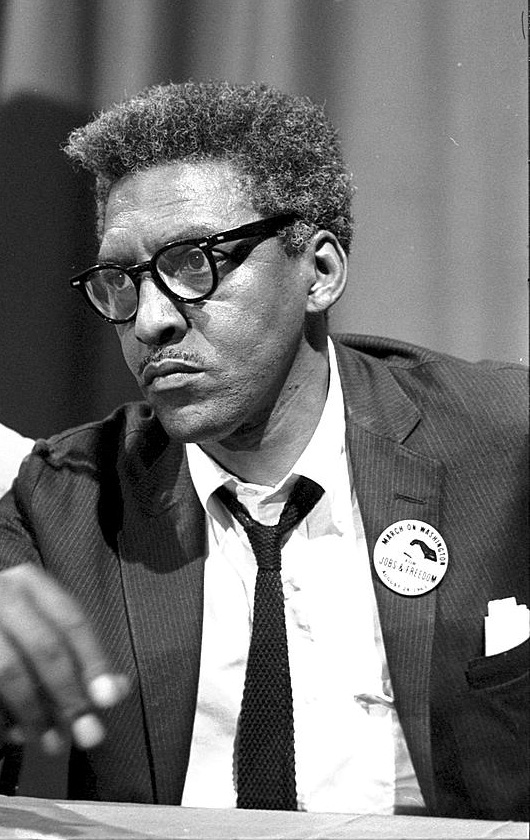
Ed. Note: this blog was originally posted on the DOL Blog
When I taught a civil rights class at the University of Maryland Law School, I would do an exercise with my students. I'd write “civil rights” on the board and ask them to tell me what immediately came to mind.
Some of the most common answers were “Martin Luther King” or “Brown v. Board of Education;” or sometimes “glass ceiling” or “Elizabeth Cady Stanton.”
I can't remember a single time that anyone ever said “Bayard Rustin.” That's a failure of history. That's our failure to be proper guardians of his legacy.
But that's changing now, thanks largely to the President Obama's decision to posthumously award Bayard Rustin the Presidential Medal of Freedom. It is richly deserved and long overdue.
I feel compelled, as secretary of labor, to pay tribute to him as well. My very first day on the job last month, I toured our department's Hall of Honor to see the heroic Americans enshrined there – Frances Perkins, A. Philip Randolph, Cesar Chavez and others. But where was Bayard Rustin?
He was one of our most tenacious fighters for the rights of workers, for collective bargaining, for the role unions play in expanding economic opportunity. The 1963 March on Washington that he organized – the “March on Washington for Jobs and Freedom,” as we all know, was the full name – was conceived as a demonstration against economic injustice. He understood as well as anyone that these two movements – civil rights and labor rights – are inextricably intertwined and their goals essentially the same.
So, I am correcting a longstanding oversight by formally inducting Bayard Rustin into the Labor Department's Hall of Honor.
Rustin was an openly gay man during a time of fear and intolerance. There was no Human Rights Campaign. There was no Pride Month. There was no “It Gets Better” campaign featuring some of the most visible public figures in America. Nope, “it gets better” was just something you had to believe when you told it to yourself.
A lot has changed since then, thankfully. From the new hate crimes law, to the repeal of DOMA and “Don't Ask, Don't Tell,” to the emerging popular support for marriage equality, we are making progress at breakneck speed. As someone who has dedicated most of my career to civil rights law, I am deeply moved by this sea change and proud to have done my part.
But we can't become complacent, on LGBT equality or any civil rights or workers' rights issue. As one of my mentors, Sen. Edward Kennedy, put it: civil rights is the unfinished business of America. And guess whose example will light the path as we rise to the next challenges?
We can't understand what we've accomplished on civil rights without telling the story of Bayard Rustin. And now, we must write the next chapter in the American civil rights story by drawing strength and inspiration from his moral courage.
Secretary Tom Perez is the United States Secretary of Labor.


